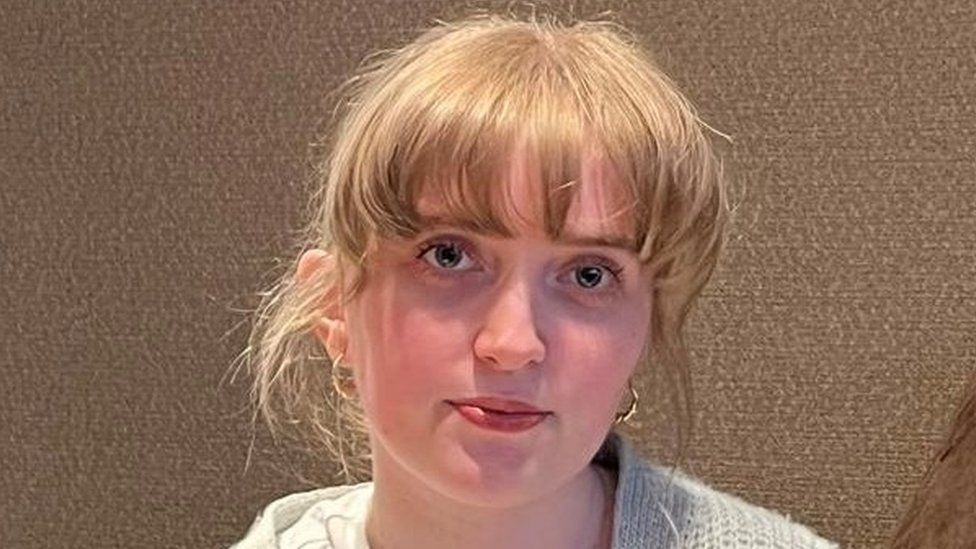
Lauren Mallon hopes the inquiry will bring lasting change
By Sara Girvin
BBC News Ireland correspondent
More than 4,000 people in Northern Ireland died with Covid-19 during the first two years of the pandemic.
As the UK Covid Inquiry starts hearing evidence in Belfast, many bereaved families want answers about how so many lost their lives and whether any of the deaths could have been prevented.
Hearings begin on Tuesday and will run for three weeks.
Members of Bereaved Families for Justice NI said they hoped lasting change will come from their testimony.
Lauren Mallon’s uncle Raymond McAleese, who had Down’s syndrome, was 52 when he died.
“For him to die in the way that he did – it was traumatic for him most harrowingly but also traumatic for us as a family,” she said.
“He was just the most joyful soul and such a character. He brought so much life into all of our family.
“He was at the centre of our family life. When I was younger I was always putting on videos for him, and he loved cans of Coke.
“He was pure joy and pure light, and knowing him was the privilege of my life.”
Image source, Lauren Mallon
Lauren said her uncle Raymond was a joyful soul
Raymond was taken to hospital after contracting Covid-19 in 2021 and over the course of a few days, his condition deteriorated rapidly.
“Mum got to Antrim Area Hospital at 06:31 but he had died at 06:29, so that was just cruel,” Lauren said.
“The biggest thing about my uncle was that he had no rights in life, and he also had no rights in death.
“He died holding the hand of a nurse, and I suppose we were lucky in that way, because others didn’t get that.”
On what she hopes to get from the Covid Inquiry, Lauren said she wanted to ensure her uncle’s life and death lead to legislative change, particularly in Northern Ireland but also across the rest of the UK.
“Hopefully other families in our position – well, hopefully other families won’t have to be in our position,” she said.
“Our most vulnerable people were let down in the pandemic – they were failed – and I don’t want anyone else to go through that.”
When the pandemic hit, Martina Ferguson spent nine months trying to visit her mother Ursula Derry, who had dementia, inside her care home.
Due to restrictions she had to stay outside.
“Mummy was physically and emotionally extremely vulnerable,” said Martina.
“She had advanced dementia and, like many others, there’s no doubt she must have felt lonely, abandoned and distressed at the enforced separation from her family.
“I feel it’s been the biggest human rights crisis. My mummy’s human rights, I feel, were violated – my human rights. Everybody in our bereaved group feel their rights were violated – and it didn’t need to be like this.
Martina Ferguson said bereaved families felt their human rights were violated
In 2021, Ursula died in hospital after contracting the virus. Martina was by her side.
“It was explained to me that my mummy would be wrapped in a sheet and be put into a body bag, and I had to challenge that,” she said.
“I said I wanted my mummy washed, so a nurse came in she helped me and I spent a couple of hours washing my mummy’s body.
“So that kind of thing, that experience, is an experience I will never ever forget.
“But I got to dress my mummy. When the time came for her to go in a body bag, I had to leave, I just couldn’t see that.”
Image source, Martina Ferguson
Martina was unable to visit her mother in her care home
Martina says she wants the Covid-19 Inquiry to bring about future change.
“We need to work through what went wrong, and learn from that,” she said.
“This must never happen again.”
Anyone can share their experience through the inquiry’s Every Story Matters project.
The report for the first area of the inquiry’s work is due by early summer but the inquiry is not expected to conclude until sometime in 2026.








